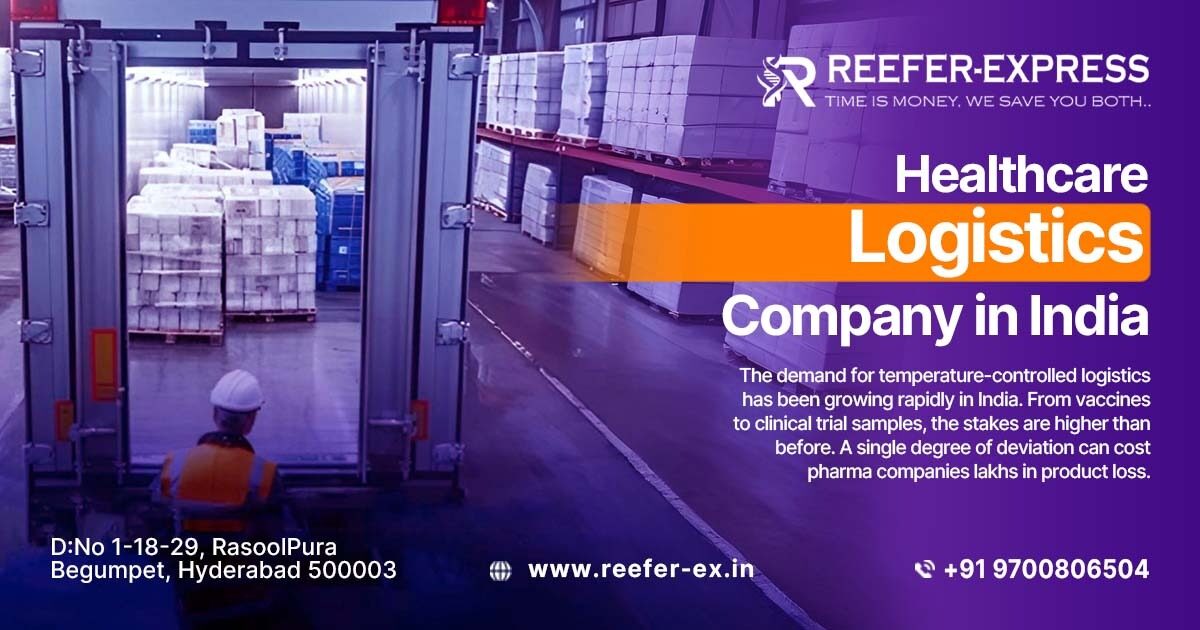Ground freight shipping is a logistics and transportation solution that involves shipping goods over land using a variety of methods. With ground shipping, businesses can deliver goods to destinations anywhere in the world in a cost-effective and efficient manner. Ground freight shipping is especially important in the pharma supply chain, where cold chain logistics play a critical role in maintaining product quality and safety.
Usage of Different Mediums of Ground Freight Shipping
Ultimately, ground freight shipping is an important part of the pharma supply chain and cold chain logistics. It offers cost-effective delivery options and allows for flexibility in terms of transit times and special handling.
The most common kind of ground freight shipping-
- Trucking: Shippers typically choose trucking for medium to long-haul shipments. Trucking is an economical way to move shipments around the country or even within the same state. Trucking is also an ideal option for shipments that require special handling, such as those that are temperature-sensitive or hazardous.
- Freight forwarding is another type of ground freight shipping. This involves the coordination of shipments by a third-party carrier. Freight forwarders can manage the entire shipping process, from scheduling pick-up to delivery. They can also provide services such as customs clearance and assistance with documentation.
- Rail is another option for ground freight shipping. It is a cost-effective way to transfer goods over long distances, particularly for time-sensitive shipments. Rail freight is a good choice for bulk shipments and also provides more direct routing than trucking.
Read Also: Find Freight Forwarder nearby you area
Various Types of Ground freight shipping
There are various sorts of ground freight shipping that are used depending on the size and weight of the items being shipped. The most common types of shipping are truckload (TL), less than truckload (LTL), expedited freight, flatbed, and intermodal.
- Truckload (TL): Truckload shipping is the most common type of ground freight shipping and is used to move large, single shipments. The shipping carrier will provide a full truck and trailer for the shipment, which can accommodate any size item. This type of shipping is ideal for large or heavier items that are difficult to ship via air or ocean freight.
- Less Than Truckload (LTL): LTL shipping is used for smaller shipments that don’t require a full truck and trailer. The shipping carrier will consolidate multiple shipments into one load, which helps reduce shipping costs. LTL is a great option for smaller and lighter items that don’t require a full truck and trailer.
- Expedited Freight: Expedited freight shipping is used for time-sensitive shipments. This type of shipping is ideal for items that must be delivered quickly, such as medical supplies or perishable items. The shipping carrier will provide a truck and trailer dedicated to a single shipment and can often deliver the shipment within a few days.
- Flatbed: Flatbed shipping is used to transport bulky and large items. This type of shipping is ideal for items that are too large or bulky to fit on a truck and trailer. The shipping carrier will provide a flatbed truck and trailer for the shipment and secure the item to the trailer.
- Intermodal: Intermodal shipping is a type of ground freight that involves using multiple transportation services to get the item to its destination. This type of shipping is ideal for items that must be shipped over long distances, as it utilizes multiple modes of transportation. The combination of air, ocean and ground services can help reduce costs while still providing timely delivery.
How Ground Freight Shipping Works
Once you decide on the type of service you need, the process of ground freight shipping is fairly straightforward. Here are the basic steps:
1. Determine the type of service needed.
2. Schedule a pickup. Once you have decided on the right service for your shipment, you’ll need to schedule a pickup time with the carrier.
3. Prepare and package your shipment. Depending on the type of goods being shipped, you may need to package your shipment in accordance with the carrier’s requirements.
4. Ship the goods. Once your package is ready, the carrier will pick it up and transport it to its destination.
5. Track the shipment. Many freight carriers offer tracking services, so you can monitor the progress of your shipment from start to finish.
Benefits of Ground Freight Shipping
Ground freight shipping offers many benefits, such as cost savings, reliable delivery, and flexible shipping options. Here are some of the main advantages of using ground freight services:
- Cost Savings: Ground freight services can often be more cost-effective than air freight and other modes of transportation.
- Reliability: Ground freight services are usually reliable, with shipments typically arriving on time and in good condition.
- Flexibility: With ground freight shipping, you have more control over the size and timing of your shipment.
- Scalability: Ground freight services can easily scale up or down to meet your needs.
key points to know about ground freight shipping:
Ground freight shipping requires careful coordination and planning, as it involves multiple parties who must work together to ensure successful delivery. Here are the key points to know about ground freight shipping:
1. Types of Ground Freight Shipping: There are two main types of ground freight shipping—less-than-truckload (LTL) and full-truckload (FTL). LTL shipping involves consolidating multiple shipments into a single truckload and is often used to ship smaller shipments that don’t require a full truckload. FTL shipping involves filling an entire truckload with a single shipment and is usually used for larger shipments.
2. Freight Class: Freight class is an important aspect of ground freight shipping and is used to determine the cost of a shipment. Freight class is determined based on the size, weight, and commodity of the items being shipped.
3. Rates and Quotes: When shipping items via ground freight, it’s important to compare rates and quotes from multiple carriers to ensure you’re getting the best deal. Before requesting quotes, you’ll need to provide details such as the size and weight of the shipment, the pickup and delivery locations, and the estimated delivery time.
4. Pickup and Delivery: Ground freight carriers typically pick up and deliver shipments at certain times throughout the week. It’s important to coordinate with the carrier to determine the best pickup and delivery times for your shipment.
5. Documentation: All ground freight shipments will require certain documentation, such as a bill of lading, delivery receipt, and other forms. Make sure you understand the documentation requirements for your shipment and are prepared to provide the necessary paperwork.
Why Choose Reefer Express For Your Cold Chain Solutions
Reefer Express is committed to providing the highest quality of service to its customers. Their team of logistics professionals is knowledgeable, experienced, and passionate about providing superior customer service.
Reefer Express also understands that your business needs to remain cost-effective. That’s why they offer competitive pricing, so that you can stay within budget without compromising quality or service. They also understand that time and temperature are critical for your business and have a variety of temperature management solutions specifically tailored to meet your unique needs.






